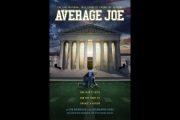
Governments — our own and those of other nations — manufacture and market fear as a means of robbing people of liberty.
This is the thesis of an insightful new book by the prolific Connor Boyack.
Boyack is the president and founder of the Libertas Institute, a libertarian think tank based in Utah. He is the author of several liberty-promoting books, including the recently released Tuttle Twins series aimed at teaching principles of liberty to young people.
His latest work, Feardom: How Politicians Exploit Your Emotions and What You Can Do to Stop Them, sets out to expose the manifold manipulations of emotions made by governments and how people can protect themselves from these insidious attacks.
One of the most powerful points made by Boyack is found in Chapter 3, “The Calm of Despotism.” Quoting Thomas Jefferson, Boyack writes, “Timid men … prefer the calm of despotism to the tempestuous sea of liberty…. Fearful people seek security over liberty — they want to be kept safe at almost any expense. Knowing this human reaction, those who desire power and gain exploit it to great success.”
Next, in defiance of the recent deification of Abraham Lincoln, Boyack points to the 16th president’s abuses of power as an example of how fear is fomented for political gain, especially by presidents who enjoy a reputation for popular admiration and historical significance. The events Boyack relates are shocking and shockingly timely:
Or consider Abraham Lincoln, a popular president idolized by many, though fully understood by few. As president, Lincoln used the force of government to shut down newspapers and seize telegraph lines he believed were a threat to the success of his war against the southern states, and imprisoned dozens of their owners and publishers.
He imprisoned thousands of Northern citizens without trial, suspended habeas corpus (a prisoner’s right since the 13th Century, to contest his imprisonment before a judge), launched a military invasion without the consent of Congress, and persecuted his political critics. Congressman Clement Vallandigham of Ohio objected to this abuse of authority and openly condemned it.
Boyack continues the story, writing:
Several months later, apparently tired of this open criticism of his actions, Lincoln ordered Union General Ambrose Burnside to use his troops to break into Vallandigham’s home, arrest him, and send him to Cincinnati for trial. Their mission was successful, and as a result, a former Congressman was held, without bail, inside a military prison “for no other offense,” he wrote his fellow Ohioans, “than my political opinions and the defense of them, and of the rights of the people, and of your constitutional liberties.”
It is undeniably chilling how such a scenario seems so possible in the present political climate, a climate where for no other reason than suspicion of “aiding terrorists,” one could be arrested by the military and shut up in a federal prison “for the duration of the War on Terror.” These are, in fact, the horrors, brought to life in the National Defense Authorization Act (NDAA) of 2011 and its progeny.
What, though, of less open and obvious assaults on freedom? Boyack has that covered, too.
In Feardom, he explains that often the brand of tyranny typical of the 21st century is a “calm despotism,” one not only not rejected by the people, but warmly embraced by them. In this case, too, fear is the grease on the skids of oppression.
“Under this scenario,” Boyack writes, “the loss of freedom is either not noticed or too little felt. Just as a person who believes his life is in peril due to an imminent attack is not likely to pay much attention to a stomach ache, so too do people disregard the violation of their liberty by spending their time, focus, and energy upon perceived threats to their very lives.”
Politicians have practiced this sort of legerdemain since the beginning of organized government. Men, bent on accumulating and exercising power over people, use war, upheaval, and threats from bogeymen as misdirections, while their deprivations of essential liberty go all but unnoticed by the crowd.
In his effort to pull back the curtain and expose the wizards pulling the levers of the propaganda machine, Boyack provides a powerful quote from the book Propaganda by Woodrow Wilson confidant Edward Bernays. Bernays writes:
The conscious and intelligent manipulation of the organized habits and opinions of the masses is an important element in democratic society. Those who manipulate this unseen mechanism of society constitute an invisible government which is the true ruling power of our country.… It remains a fact that in almost every act of our daily lives, whether in the sphere of politics or business, in our social conduct or our ethical thinking, we are dominated by the relatively small number of persons…. It is they who pull the wires which control the public mind, who harness old social forces, and contrive new ways to bind and guide the world.
Bernays knew and Boyack knows that good men and women can be tricked into believing bad things to be in their best interest when exposed to a constant barrage of cleverly crafted, narrowly tailored, accurately targeted messages all purposefully planned to push the masses toward new and terrifying levels of tyranny.
What can be done, then, if we are to steadily steer the ship of state through Jefferson’s “tempestuous sea of liberty”?
Boyack has several good recommendations.
First, he suggests that we “embrace truth.”
“When lying has become mainstream,” he writes, “it’s a good idea to seek out those who challenge this narrative.”
The next step in liberating ourselves from those who would be our captors and our protectors is “assuming risk.”
“Liberty requires risk, and only a fully totalitarian society could remove all risk — and only by completely denying any amount of freedom,” Boyack observes, “but liberty — true liberty — recognizes and accepts risk, while acting in a smart and sensible fashion to reduce it while preserving liberty.”
While all of these remedies are good and will work to treat the disease of despotism and the fever that accompanies it, Boyack suggests that there is only one true antidote: love.
“Greater love hath no man than this,” Boyack writes, quoting Jesus Christ, “that he lay down his life for his friends.”
“Love leads us to see others as part of a brotherhood of mankind, rather than part of a rivalry faction that we should oppose in order to support our own team,” Boyack states.
Love of liberty and the personal responsibility and accountability that undergirds it will lead all men and women to decry despotism, denounce the fears being produced and promoted by would-be tyrants, and reject once and for all the “tranquility of servitude” in favor of the hard-won, difficult to preserve “animating contest of freedom.”
Boyack’s book is a worthwhile addition to his oeuvre and is an illuminating entrée into the literature promoting the fight for freedom facing all of us in the 21st century.
Feardom by Connor Boyack will be available for sale on December 8.
Joe A. Wolverton, II, J.D. is a correspondent for The New American. Follow him on Twitter @TNAJoeWolverton.



